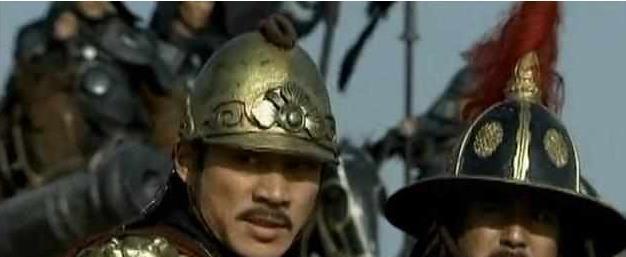
The Ming army, which was originally very poor in combat effectiveness, immediately became very powerful after surrendering to the Qing army, especially in the battle with the Ming army, and its performance was particularly eye-catching. It can be said that after the Qing army crossed Hebei, when fighting the Ming army, the main force was basically the Ming army that surrendered to the Qing.
In fact, this phenomenon is not surprising, this situation will occur at the end of any dynasty, not only at the time of the Ming and Qing dynasties, but also in any dynasty.
Every army that has experienced a long period of dynastic period will have more serious problems, including a large number of empty salaries, claiming 100,000 people, but in fact there may be only 20,000 or 30,000 people, and only about 10,000 people can form combat effectiveness. This is still a relatively good situation, and more situations will be much worse than this, and the army of hundreds of thousands of people may actually be able to fight a war, and only a few thousand people may actually be able to fight.
Generally speaking, such an army will not be too strong in combat from top to bottom, and the main thing is to defraud money and grain from the imperial court for the generals to squander themselves. Once there is really going to be a war, the enemy comes, either the wind is broken, or the first to take the lead in the landing, because their real strength is simply not enough to fight the enemy.
After surrender, generally selection, elimination, and reorganization will be carried out, and the quota of falsely reported empty pay will be removed, and the water will be squeezed out, and the remaining people will be cut off some of the old, weak, sick and disabled without combat effectiveness, and then the remaining talents will be reorganized and trained to form combat effectiveness. Originally, it was said that hundreds of thousands of people, the remaining people may only be tens of thousands or even thousands of people, and the combat effectiveness will naturally be greatly improved.
For example, at the end of the Northern Song Dynasty, the Hebei Changsheng Army Guo Yaoshibu originally belonged to the Liao State, when the Liao State fell to the Song Dynasty, the Song Dynasty was favored, the Changsheng Army was known as 50,000, the township soldiers were claimed to be 300,000, and the defense of Hebei and Yanyun areas retaken from the Liao State was almost all handed over to him to defend. The chancellor sent by the imperial court to inspect Hebei had proposed to pay attention to and strengthen the defense, and Emperor Huizong trusted Guo Yaoshi and thought that it was not necessary. As a result, after the Jin army came over, the Song army ran first, and Guo Yaoshi had to lower the gold again.
Of course, because before the head, Guo Yaoshi's Changsheng Army and the Jin Army fought a large-scale battle, the losses should be relatively large, and the escape of Zhang Linghui on the flank caused Guo Yaoshi's Changsheng Army to collapse, and there must have been a large number of escapes. However, after Guo Yaoshi surrendered to the Jin army, after reorganization, the remaining army was only a thousand people, and when serving as the vanguard of the Jin army, the Jin army had to add another thousand cavalry to him.
In addition, the daily training of the army after a long period of peace will degenerate very quickly, and the relatively low combat effectiveness is the norm. In the event of war, such an army often collapsed easily, and if the imperial court wanted to continue fighting, it had to form another army and re-strengthen training. If the original army is in the border area and the combat tasks are more frequent, the training will be more sophisticated and the combat effectiveness will be stronger.
Also taking the Northern Song Dynasty as an example, after the alliance of the Liaoyuan Dynasty, the Song and Liao sides maintained peace for a long time, so by the time the Western Xia War broke out, the performance of the Song army was very bad, Fan Zhongyan and Han Qi could only recruit and train the army separately, and the Western Army that was later formed became the most effective army in the late Northern Song Dynasty.
The situation in the Ming Dynasty was basically the same as this. At the end of the Ming Dynasty, the real combat effectiveness was actually the Guan Ning Army, because it was tempered in the long war with Houjin at this time, although there was also the problem of eating empty pay, but because the imperial court was relatively tightly watched, the problem was not as much as the vacancy of the army responsible for suppressing Li Zicheng and Zhang Xianzhong in the interior, and the combat effectiveness was far better than that of Zuo Liangyu, Huang Degong, and other towns along the river in the interior. After surrendering to the Qing army, the troops of the four towns along the river also underwent disarmament, reorganization, and retraining, and their combat effectiveness was also improved.